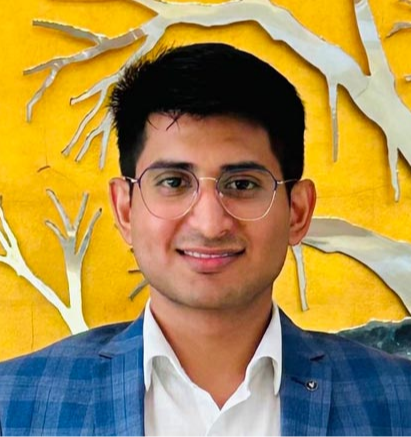-
CENTRES
Progammes & Centres
Location
President Yoon Suk Yeol’s imposition of martial law, response to it highlights the fragility and resilience of democratic principles in the country

Image Source: Getty
On December 3, South Korean President Yoon Suk Yeol declared martial law for the first time since the country became a liberal democracy in 1987. While the incident highlighted systemic and institutional flaws, particularly the concentration of political power with the president, it also underlined the fragility of civil-military relations, bringing back the dark memories of the military dictatorship that lasted from 1961-1987. On the one hand, Kim Yong-Hyun, the ex-defence minister, has been charged with treason for his role in the martial law declaration. On the other hand, the military’s role and agreement with the Yoon administration’s political decision, reflecting its partisan alignment with the conservative political faction of the country, has raised concerns.
After the lifting of martial law, the Democratic Party, the opposition in the country, investigated the reason behind its declaration, which triggered political turmoil in the country and sent shock waves among citizens and businesses.
After the lifting of martial law, the Democratic Party, the opposition in the country, investigated the reason behind its declaration, which triggered political turmoil in the country and sent shock waves among citizens and businesses. Those remotely linked to the episode — including senior military and police officials — have been interrogated by lawmakers for their role. This exercise was undertaken because of the red flags that emerged during the investigation. For instance, the revelation by Lt Gen Kwak Yong-geun, head of the Army Warfare Special Command, during the National Assembly hearing, that the president ordered special forces to stop the Opposition lawmakers from entering the national assembly and exercising their constitutional rights, highlighted the fact that his motive was political.
The Opposition has accused President Yoon of establishing a prosecutor-military regime, positioning his close aides in critical positions. The Opposition claims that under his patronage, Yoon had formed a group of key close aides, also known as the Choongam faction — alums of the Choongam High School. Some key figures of this faction are Kim Yong-hyun, ex-defence minister, Lee Sang-min, interior minister; and Yeo In-hyeong, Commander of the Defence counterintelligence command. The Choongam faction brings back the memories of Hanahoe (association of one) — a private organisation of military officers formed in 1963, responsible for the coup after President Park Chung-hee’s 1979 assassination.
Among the Choongam faction, the role of Kim Yong-hyun has piqued the Opposition’s curiosity due to his post and past. While his crucial role as the minister of defence — he proposed and carried out martial law — is being investigated, he has also rekindled the controversy surrounding the issue of former military leaders holding important cabinet posts related to security and defence.
The investigation revealed that Kim Yong-hyun asked senior military officials to get access to National Election Commission facilities to collect evidence regarding allegations of election fraud.
This issue has raised concerns about the lack of civilian control over the military, which is critical for upholding robust civil-military relations. Disputes already taint this post’s history. For example, even during Park Geun-hye’s presidential tenure (2013-12017), the defence minister ordered the security command to implement martial law in case her impeachment decision was rejected. Another apprehension in civil-military relations is regarding the politicisation of the military. The use of the military by the Yoon administration to achieve political objectives has emerged as a challenge.
The investigation revealed that Kim Yong-hyun asked senior military officials to get access to National Election Commission facilities to collect evidence regarding allegations of election fraud. Similarly, according to reports in South Korean media, the defence minister allegedly wanted to instigate a conflict with North Korea by launching a drone and using it to justify the invocation of martial law. Beyond the military, the role of senior police officials from the National Police Agency and Seoul Metropolitan Police Agency has received greater attention as the ambit of investigation expands.
This commentary originally appeared in The Indian Express.
The views expressed above belong to the author(s). ORF research and analyses now available on Telegram! Click here to access our curated content — blogs, longforms and interviews.

Abhishek Sharma is a Research Assistant with ORF’s Strategic Studies Programme. His research focuses on the Indo-Pacific regional security and geopolitical developments with a special ...
Read More +